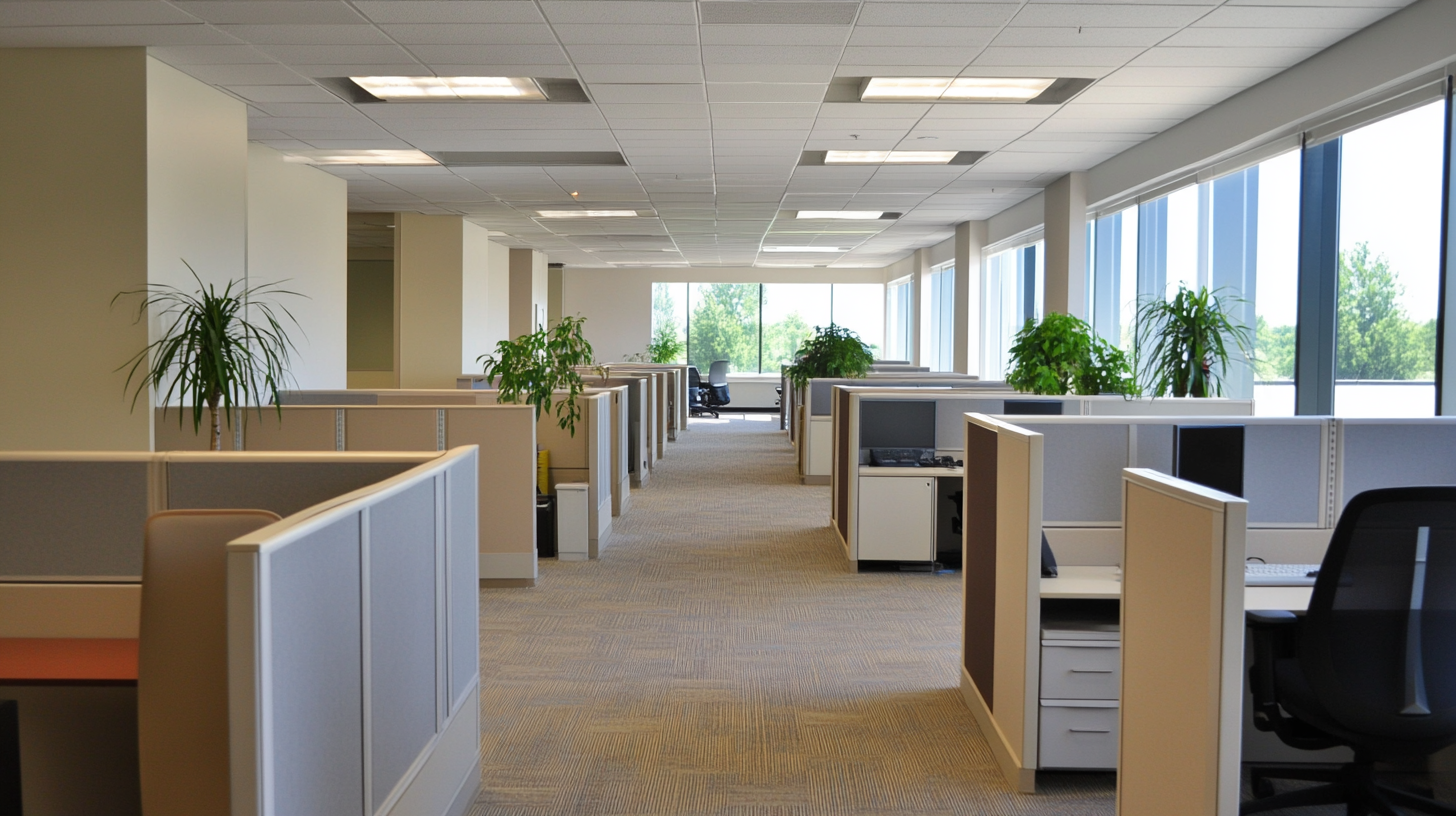
The choice of office rental space plays a crucial role in shaping the dynamics of a business. It goes beyond providing a location for employees to work; the right office space can influence employee productivity, customer impressions, and overall business operations.
In today’s fast-paced and highly competitive marketplace, the space you choose to operate from can significantly impact your success. Understanding how office rental space affects various facets of your business is essential for making informed decisions.
1. Employee Productivity and Morale
The office environment directly influences employee productivity, morale, and overall job satisfaction. A well-designed and comfortable space can boost employee engagement and efficiency, while a poorly lit, cramped, or disorganized office can lead to burnout and decreased performance.
- Natural Lighting and Workspace Layout: Offices with plenty of natural light improve employee well-being. Studies show that access to sunlight can reduce stress, improve mood, and increase productivity. Additionally, the layout of the office—whether it’s open-plan or a more segmented design—affects how employees collaborate. Open spaces can foster teamwork and communication, while segmented areas provide privacy for focused work.
- Ergonomic Furniture and Equipment: Comfortable chairs, desks, and workstations also contribute to a healthier working environment. Renting office space that offers ergonomic furnishings, or allowing the flexibility to incorporate them, demonstrates that you prioritize employee health and productivity.
- Break Areas and Social Spaces: Break rooms and social spaces where employees can unwind also play a part in boosting morale. The presence of a well-equipped kitchen or comfortable lounge areas can improve work-life balance, allowing employees to recharge during the day, which in turn positively impacts their performance.
2. Brand Image and Professionalism

The office rental space is often the first physical touchpoint for clients, partners, and visitors. The way your office is presented reflects your company’s brand and professionalism.
- Location: Where your office is located speaks volumes about your business. Being in a prestigious area or business district can lend your company a sense of credibility and reliability. On the other hand, being in a rundown or less accessible location might give a negative impression, no matter how professional your services are.
- Office Design and Aesthetics: The interior design and appearance of your office space can also influence how others perceive your business. A well-decorated, clean, and modern office conveys success and professionalism. Small touches such as artwork, well-maintained furniture, and even the cleanliness of the office play a part in shaping how clients view your business. A neglected office space can raise doubts about the quality of your services.
3. Operational Efficiency and Business Growth
The office space you choose can either enhance or hinder your company’s operations. A thoughtfully chosen space can streamline workflows, while an ill-fitted one may introduce inefficiencies.
- Space Utilization: Proper space planning allows for smoother operations. Renting an office with too little space can lead to overcrowding and reduce employee efficiency. Too much space, on the other hand, can inflate your overhead costs unnecessarily. The key is to find an office that fits your current needs while providing room for growth.
- Flexibility for Expansion: Renting office space that can accommodate future growth is a smart investment. As businesses evolve, they often require additional workstations, meeting rooms, or storage areas. An office space that offers flexible leasing options or the potential to expand within the building can save time and money down the line, avoiding the need for an early relocation.
- Technology and Infrastructure: The infrastructure provided by the office space can impact how efficiently your business runs. Ensure that the office is equipped with essential services such as reliable internet connectivity, phone lines, and security systems. Modern office spaces that offer technological integration, such as smart conference rooms, digital security systems, and cloud storage, are particularly advantageous for businesses reliant on cutting-edge technology.
4. Cost and Financial Impact

Renting office space is often one of the largest expenses for a business. Therefore, understanding how your rental costs align with your budget is critical to maintaining financial health.
- Fixed vs. Variable Costs: Many businesses prefer fixed rental costs so they can plan their budgets accordingly. However, some leases may include variable costs such as maintenance fees, property taxes, or shared building expenses. Understanding all the costs associated with renting your office space helps to avoid unexpected financial strain.
- Return on Investment (ROI): The value of office space isn’t just in square footage—it’s in how that space supports your business operations and goals. A high-quality office in a prime location might have a higher rental cost, but it can lead to better client retention, employee satisfaction, and overall business growth. On the flip side, opting for a cheaper, less ideal space can save money in the short term but may cost you more in lost productivity or missed opportunities.
- Business Development Opportunities: Choosing the right office space can open doors for business development. For example, renting space in a co-working environment or a business hub can provide networking opportunities with other businesses and potential clients. Being situated in a location that’s easily accessible to industry events, conferences, or trade shows can also offer a competitive advantage.
5. Employee Retention and Attraction
Your office space plays a role in your company’s ability to attract and retain top talent. Potential hires often judge a company by its work environment, and current employees may feel more valued if they have access to a comfortable and inspiring office space.
- Work-Life Balance: A well-situated office can make it easier for employees to balance their work and personal lives. Proximity to public transportation, restaurants, gyms, and other amenities can create a more enjoyable workday, helping to retain employees who value convenience.
- Remote Work and Flexibility: With the rise of remote work, some businesses may not need a traditional office space for all employees. However, even in a hybrid work model, having a flexible office space that employees can access when necessary can provide a sense of community and belonging, which is important for team cohesion and morale.
Rent Office Space
The office space you rent has far-reaching implications for your business. From influencing employee productivity and brand perception to impacting financial stability and business operations, the right office can propel your business to greater heights, while the wrong one can hold you back.
Carefully considering location, size, design, costs, and long-term flexibility will ensure that your office space supports your business goals, aligns with your brand, and fosters a positive work environment.
